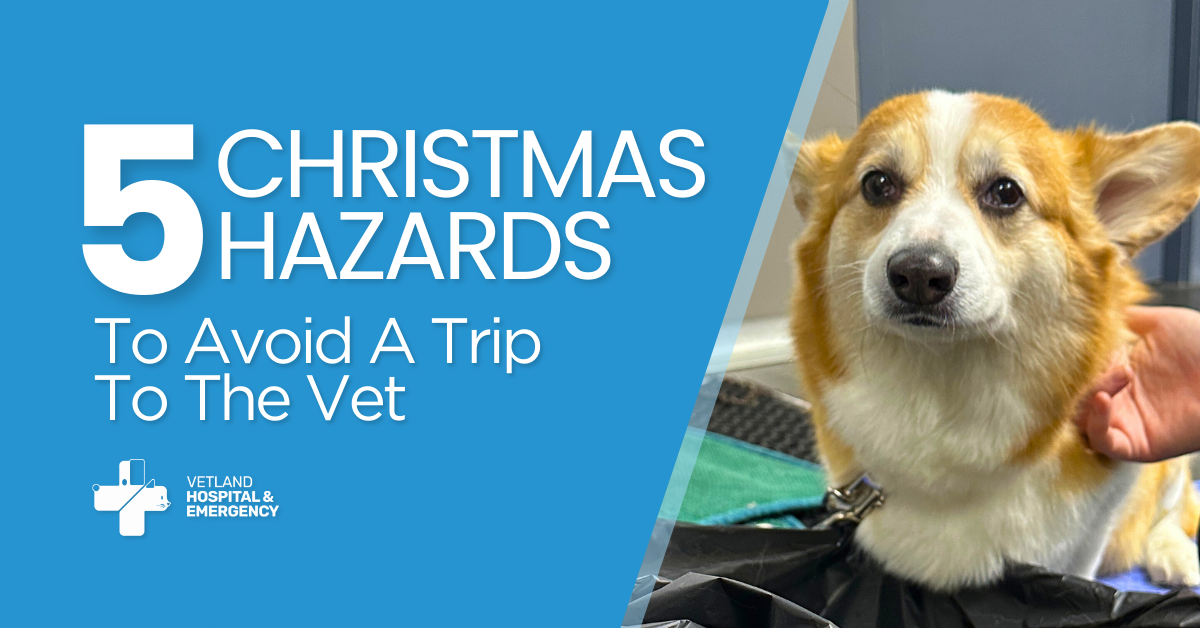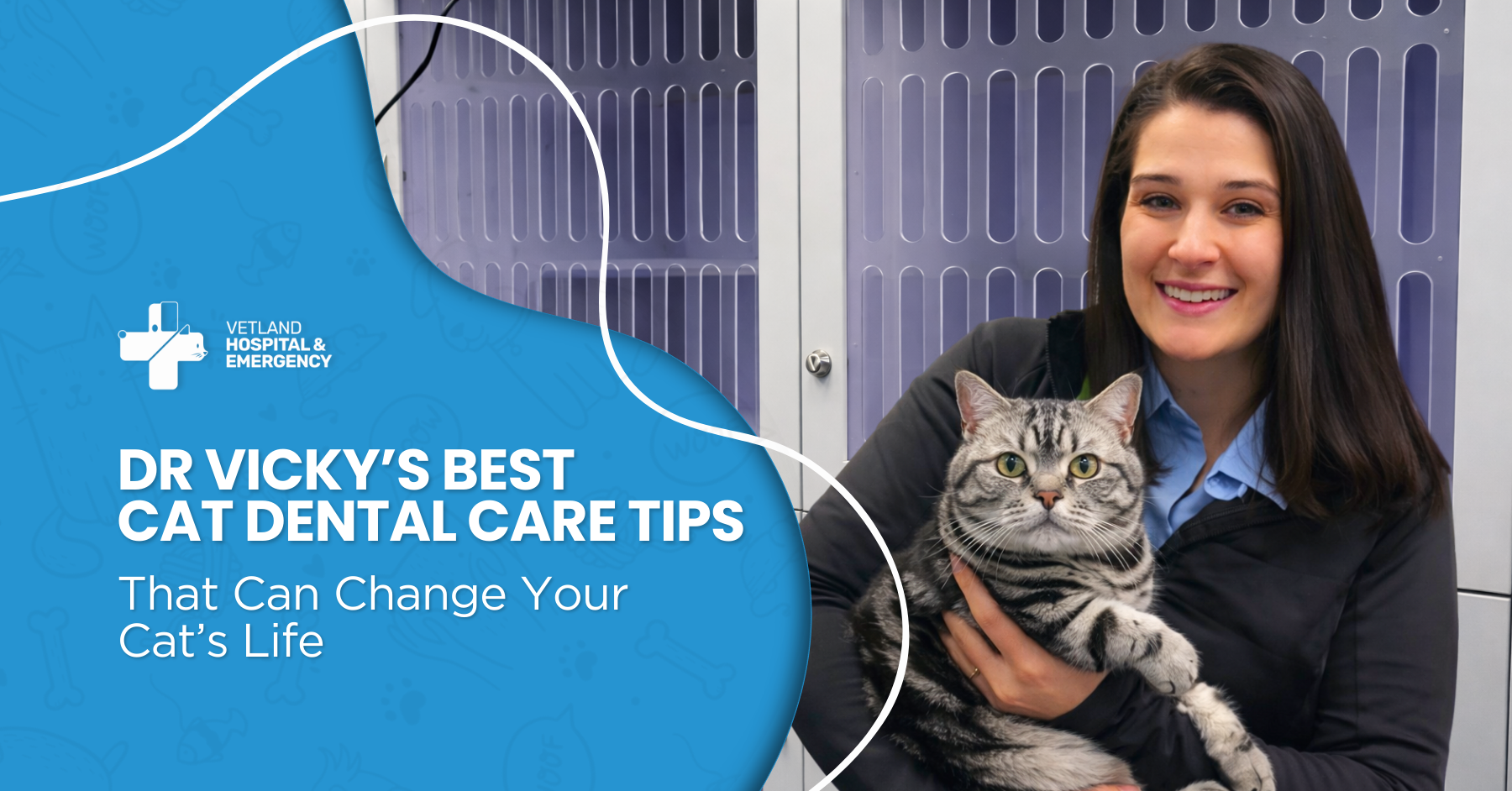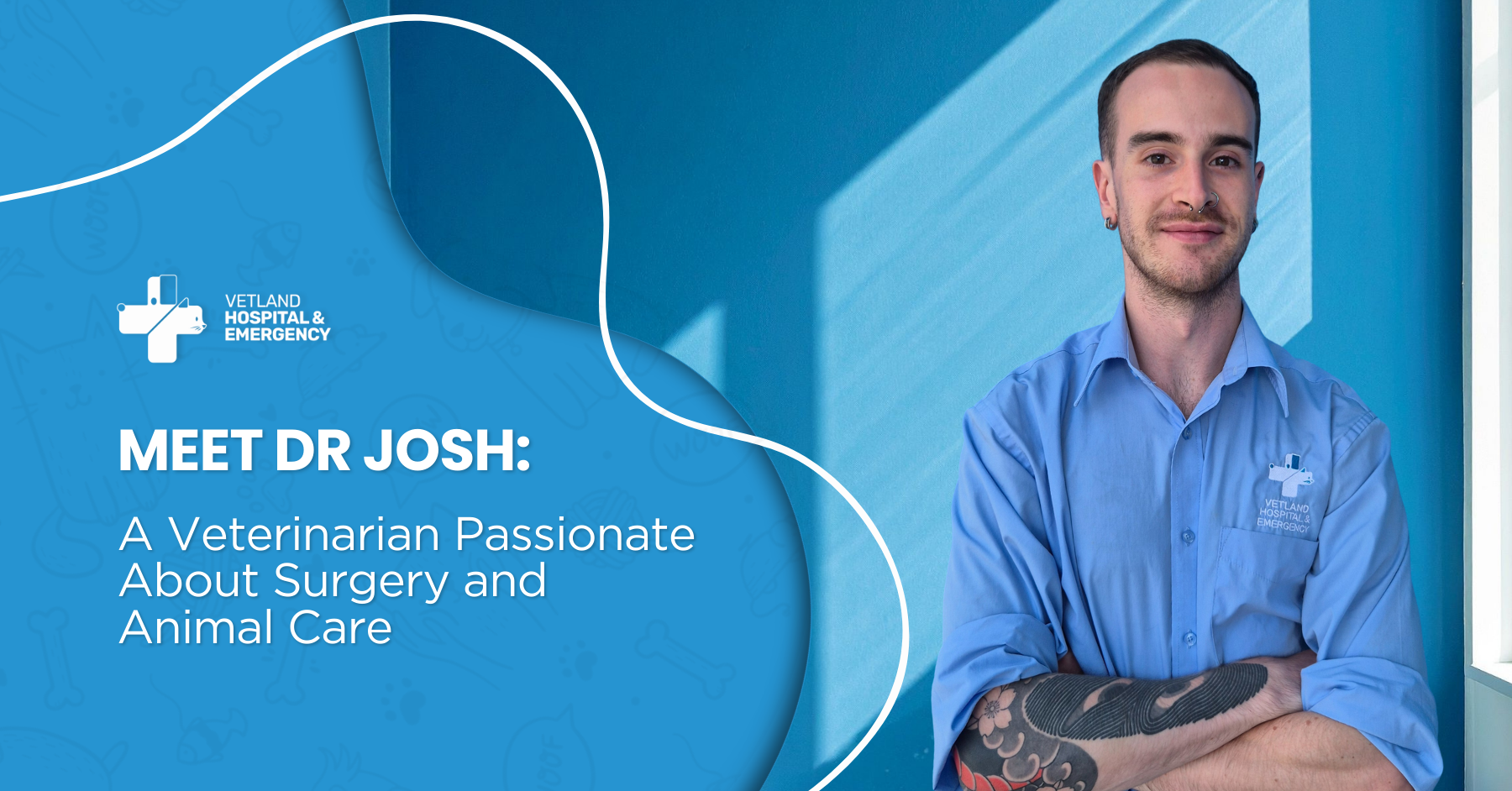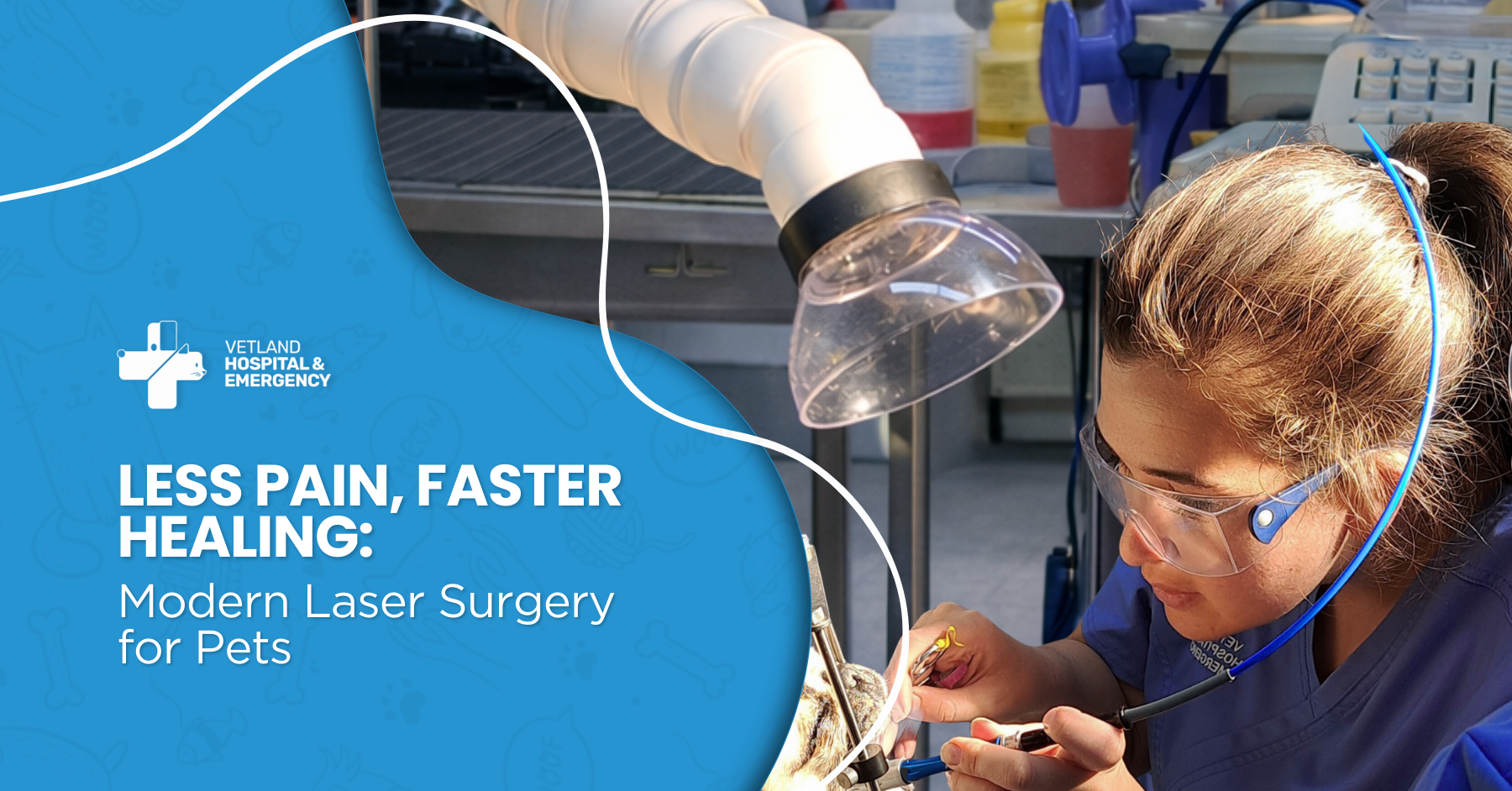Dr Vicky’s Best Cat Dental Care Tips That Can Change Your Cat’s Life
Your cat may be hiding dental pain right now, would you know it? Cat dental care matters for one reason—it hurts.There are no obvious symptoms, but...
2 min read
![]() VetLand Hospital & Emergency
Dec 12, 2024 1:41:21 AM
VetLand Hospital & Emergency
Dec 12, 2024 1:41:21 AM


Whilst Christmas is a very exciting time of year, it is the busiest time of year at our hospital. All the things that make the holidays great for us, can be a bit too much for our pets. So, as much as we love seeing you and your pet’s, here are some of our top tips to stay out of the ER this Christmas season!
Sharing holiday treats with your pets may be tempting, but lots of our holiday dinners can actually make them quite unwell. Common culprits include:
How to keep your pets safe:
Loud celebrations, especially fireworks, are sudden and can be distressing for most pets. We see many dogs escaping or hurting themselves trying to their best to get to safety.
Steps to ease your pet’s anxiety:
Warm weather during the festive season can be particularly dangerous for brachycephalic (short-nosed) breeds like Bulldogs, Pugs, and French Bulldogs. Their limited ability to regulate body temperature puts them at a higher risk of heatstroke.
Tips to protect your pet:
If your bulldog-faced breed hasn’t been assessed for brachycephalic obstructive airway syndrome, we would really urge you to make this a priority. Click here for more information on BOAS and treatment options at VetLand Hospital & Emergency.
With increased visitors and the risk of pets escaping during noisy celebrations.
What to check:
Seasonal plants and decorations can be a disaster for some pets, shiny tinsel is fun to play with but not so fun to eat!
Hazardous holiday plants:
Dangerous decorations:
How to keep your home safe:
Place plants and decorations out of your pet’s reach - if you have a cat, don’t have them in the house.
The holiday season is a wonderful time to make cherished memories with your loved ones, including your pets. By taking simple precautions—avoiding toxic foods, preparing for noise anxiety, and safeguarding your home—you can ensure your furry friends stay safe and happy.
From all of us at VetLand Hospital & Emergency, we wish you and your pets a joyful, safe, and festive season!

Your cat may be hiding dental pain right now, would you know it? Cat dental care matters for one reason—it hurts.There are no obvious symptoms, but...

What makes someone choose a career full of uncertainty, constant learning, and never-ending challenges?

Gentle. Precise. Designed for Comfort.